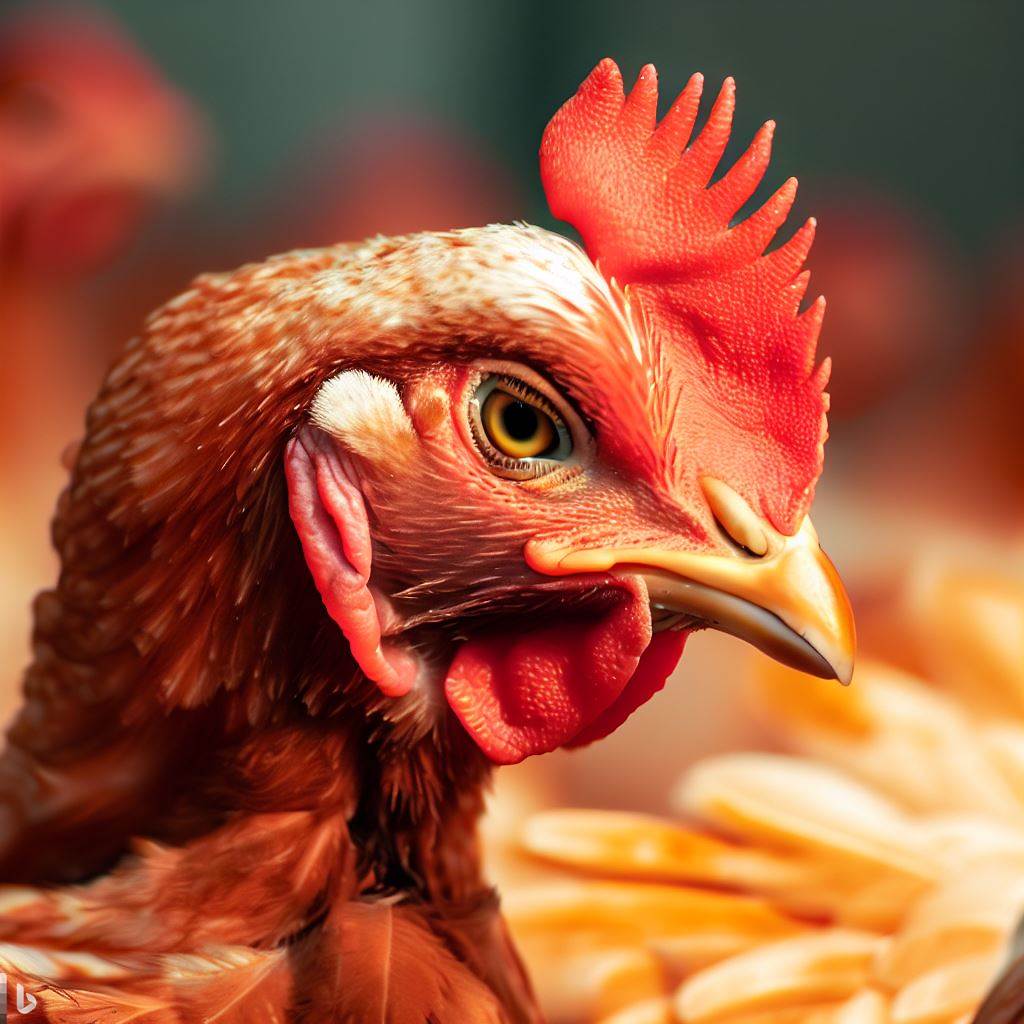Effective Strategies for Poultry Production in Nigeria
Last Updated on August 22, 2023
Introduction
Poultry production in Nigeria is a crucial aspect of the agricultural sector, providing a source of income and employment for many individuals.
The industry involves the raising of chickens, turkeys, ducks, and geese for their meat and eggs.
Implementing effective strategies in poultry production is essential for the success and sustainability of this sector.
Brief explanation of poultry production in Nigeria
Poultry production in Nigeria involves the rearing and breeding of various poultry birds, such as broilers, layers, and breeders.
The primary purpose is to meet the growing demand for poultry products, including meat and eggs.
It plays a significant role in the country’s food security and nutritional needs, as well as generating income for farmers and other stakeholders.
Importance of implementing effective strategies
Implementing effective strategies is crucial in ensuring the profitability, productivity, and sustainability of poultry production in Nigeria.
These strategies include proper housing and management practices, disease control measures, improved feed formulation, and efficient marketing techniques.
By implementing these strategies, farmers can achieve increased production, improved bird health, reduced mortality rates, and higher income generation.
Effective strategies also contribute to enhancing the quality and safety of poultry products, meeting both local and international standards.
This is important as Nigeria aims to export poultry products to other countries, thereby generating foreign exchange and boosting the economy.
Additionally, the implementation of effective strategies promotes job creation, particularly in rural areas, and reduces the country’s dependence on imported poultry products.
In general, implementing effective strategies in poultry production in Nigeria is vital for the growth and development of this industry.
It not only ensures the profitability and sustainability of poultry farming but also contributes to food security, job creation, and economic growth.
By continually improving and implementing these strategies, Nigeria can position itself as a competitive player in the global poultry market.
Understanding the Nigerian poultry industry
Overview of the current state of poultry production in Nigeria
- Nigeria ranks among the top poultry producers in Africa, with a large domestic market.
- Poultry production in Nigeria includes broilers, layers, and local chicken breeds like the Nigerian Indigenous Chicken.
- The poultry industry plays a crucial role in the country’s economy, contributing to food security and employment.
- The demand for poultry products in Nigeria is high, driven by population growth, urbanization, and changing consumer preferences.
- Large-scale commercial poultry farms, as well as small-scale backyard farming, are prevalent in Nigeria.
Challenges faced by poultry farmers in Nigeria
- High production costs, such as feed and energy expenses, pose a significant challenge for poultry farmers.
- Inadequate infrastructure, like road networks and electricity supply, hampers the growth of the poultry sector.
- Outbreaks of poultry diseases, including avian influenza and Newcastle disease, have caused substantial economic losses.
- Access to finance and affordable credit facilities is limited for small-scale poultry farmers.
- Poor biosecurity measures and lack of proper sanitation contribute to disease outbreaks and reduced productivity.
- The shortage of skilled labor and professionals in the poultry industry negatively impacts efficiency and growth.
- Inconsistent government policies and inadequate support from regulatory agencies hinder the development of the sector.
- Competition from imported poultry products, which are often cheaper, puts domestic producers at a disadvantage.
- Insufficient market infrastructure and distribution networks make it challenging for poultry farmers to reach consumers.
- Climate change and environmental factors, such as heat stress and water scarcity, affect poultry production in Nigeria.
Strategies for Poultry Production in Nigeria: Amid challenges, Nigerian poultry farmers are bolstering productivity and profits.
They opt for hybrid breeds, elevating growth rates and egg-laying. Modern techniques like automated feeding and climate control optimize efficiency.
Biosecurity, including vaccinations and waste management, curbs disease.
To cut costs, farmers explore local feed sources and benefit from government aid, like subsidies, training, and credit access.
This pivotal industry demands focus on infrastructure, disease control, market entry, and skill enhancement for sustainable growth and national development.
Key factors for successful poultry production in Nigeria
Quality breed selection and management
- Choosing local breeds is important as they are adapted to the Nigerian climate and have better disease resistance.
- Effective management of poultry breeds involves providing proper nutrition, vaccination, and regular health check-ups.
Proper housing and infrastructure
- Poultry housing should fulfill essential requirements such as adequate space, ventilation, lighting, and cleanliness.
- Well-designed infrastructure provides advantages like increased productivity, reduced stress, and improved biosecurity.
Feeds and nutrition
- Poultry require essential nutrients like carbohydrates, proteins, fats, vitamins, and minerals for their growth and health.
- Cost-effective feed formulation strategies involve using locally available ingredients and optimizing nutrient ratios.
Disease prevention and control
- Common diseases in Nigerian poultry farms include Newcastle disease, Gumboro disease, and avian influenza.
- Implementing vaccination programs and strict biosecurity measures help prevent and control the spread of diseases.
Efficient waste management
- Poultry waste can have a negative impact on the environment if not managed properly, leading to pollution and diseases.
- Best practices for waste management include proper disposal, composting, and utilizing waste for biogas production.
Read: The Impact of Agronomy Sales in Nigeria’s Economy
Financial and marketing strategies for poultry farmers in Nigeria
Effective financial planning and building a strong market network are crucial for the success of poultry farmers in Nigeria.
In this section, we will discuss strategies to achieve both goals.
Effective financial planning
1. Budgeting and cost analysis
Creating a comprehensive budget that includes all expenses related to poultry production is essential.
Farmers should consider costs such as feed, vaccines, equipment, labor, and maintenance.
Regular cost analysis helps identify areas where expenses can be reduced or optimized.
2. Funding options for poultry farmers
Poultry farmers in Nigeria can explore various funding options to support their operations.
Options include government agricultural loans, grants, subsidies, and partnerships with agribusinesses.
Farmers should research and evaluate available options to determine the most suitable and beneficial for their specific needs.
Building a market network
1. Identifying potential buyers and distribution channels
Successful poultry farmers should strive to establish a strong market network.
This involves identifying potential buyers such as wholesalers, retailers, restaurants, and individuals.
Additionally, farmers should explore different distribution channels, including local markets, supermarkets, and online platforms.
2. Marketing strategies for poultry products
To effectively market poultry products, farmers need to understand their target audience and develop appropriate strategies.
This may include creating a brand identity, advertising through various channels (print, online, social media), participating in trade shows or exhibitions, and offering competitive pricing and promotions.
Farmers should also focus on maintaining product quality and building a reputation for reliability and consistency.
By implementing effective financial planning and building a strong market network, poultry farmers in Nigeria can increase their profitability and sustainability.
It is important to continuously monitor and adjust strategies based on market trends, customer feedback, and changing financial circumstances.
Overall, a well-developed financial and marketing plan can significantly contribute to the success of poultry farming ventures in Nigeria.
Read: Promoting Gender Equality in Nigeria’s Livestock Sector

Government support and policies for Nigerian poultry production
Overview of government initiatives
- The Nigerian government recognizes the importance of the poultry industry in providing food security and creating employment opportunities.
- Various initiatives have been introduced to support and promote the growth of the poultry sector in Nigeria.
- The government has established agencies such as the National Agricultural Extension and Research Liaison Services (NAERLS) and the Nigerian Agricultural Insurance Corporation (NAIC) to provide technical assistance and insurance coverage for poultry farmers.
- These initiatives aim to enhance productivity, improve market access, and ensure the overall development of the poultry industry.
Incentives and grants available for poultry farmers
- The Nigerian government provides incentives and grants to encourage investment in poultry farming.
- These incentives include tax breaks, subsidized loans, and grants for infrastructure development.
- Poultry farmers can access these incentives by complying with the necessary regulations and demonstrating their commitment to the sustainable development of the industry.
- The grants help farmers acquire modern equipment, improve animal healthcare services, and implement best practices in poultry management.
Supportive policies for the growth of the poultry industry
- The Nigerian government has implemented policies that support the growth of the poultry industry.
- These policies include the ban on the importation of frozen poultry products to promote local production and protect domestic farmers.
- The government also introduced the National Poultry Development Program (NPDP) to provide financial assistance and mentorship to small-scale poultry farmers.
- Additionally, policies are in place to regulate the use of antibiotics and ensure the safety and quality of poultry products.
- The government collaborates with stakeholders in the poultry industry to develop and review policies regularly.
- This collaboration helps address challenges and identify opportunities for the sustainable growth of the poultry sector.
- The government also promotes training programs and workshops to enhance the skills and knowledge of poultry farmers.
- These supportive policies contribute to the development of a thriving and competitive poultry industry in Nigeria.
In summary, the Nigerian government plays a critical role in supporting and promoting the growth of the poultry industry.
The various initiatives, incentives, and supportive policies provide necessary assistance and create a conducive environment for poultry farmers.
However, continuous collaboration and periodic review of these initiatives and policies are essential to address emerging challenges and ensure the long-term sustainability of the sector.
Read: The Journey to Becoming a Poultry Producer in Nigeria
Case Studies and Success Stories
Highlight Successful Nigerian Poultry Farms
Nigeria, being the largest country in Africa, has a booming poultry industry with several successful farms.
Let’s take a closer look at some of these farms and their strategies for achieving success.
- Zartech Limited: Zartech Limited is a renowned poultry farm in Nigeria that has been operating for over three decades. They have successfully integrated their poultry production with processing and distribution, allowing them to control quality throughout the supply chain.
- Amo Byng Nigeria Limited: Amo Byng Nigeria Limited is another remarkable poultry farm in Nigeria. They have implemented modern and efficient farming techniques, such as automated feeding systems and climate-controlled housing, to maximize production and minimize costs.
- Obasanjo Farms: Founded by former President Olusegun Obasanjo, Obasanjo Farms is known for its large-scale poultry production. They have invested heavily in biosecurity measures to prevent disease outbreaks and ensure the health of their birds.
Lessons Learned from Their Strategies
- Integrated Value Chain: Leading farms like Zartech Limited recognize the value of overseeing the entire production process. This integration of production, processing, and distribution ensures quality consistency and enhanced profits.
- Modern Techniques: Farms such as Amo Byng Nigeria Limited employ automation to boost efficiency. Automated feeding systems result in healthier and faster-growing birds by ensuring precise and timely nourishment.
- Disease Prevention: Biosecurity efforts at Obasanjo Farms underscore disease prevention’s importance. Strict protocols encompass farm hygiene, vaccination, and controlled access, mitigating disease risks and safeguarding investments.
- Continuous Innovation: Thriving poultry farms constantly seek enhancement. Investment in research and development keeps them aligned with the latest technologies, farming practices, and market trends.
- Quality Assurance: Upholding high standards is pivotal. Regular health monitoring, compliance with feed and medication regulations, and proper processing and packaging guarantee safe, nutritious poultry products.
- Targeted Marketing: Flourishing farms identify and cater to specific market needs. Through market research, they adapt production to consumer preferences, establishing robust distribution networks for effective reach.
- Capacity Building: Prioritizing ongoing training and growth is essential. Learning from industry experts, attending seminars, and exchanging insights with successful peers refine production techniques.
In general, Nigeria’s poultry sector boasts achievements from farms like Zartech Limited, Amo Byng Nigeria Limited, and Obasanjo Farms.
Their holistic strategies encompass value chain integration, modernization, disease control, innovation, quality assurance, focused marketing, and capacity building.
Aspiring farmers can draw vital lessons, contributing to Nigerian poultry’s sustainable growth.
Read: Top Challenges Faced by Nigerian Poultry Producers
Conclusion
Recap of effective strategies for poultry production in Nigeria:
In this section, we have discussed several effective strategies for poultry production in Nigeria. These strategies include:
- Investing in high-quality breed selection and genetics.
- Implementing proper biosecurity measures to prevent the spread of diseases.
- Providing a balanced and nutritious diet for optimal growth and health.
- Emphasizing proper housing and ventilation to provide a comfortable environment for the birds.
Encouragement for poultry farmers to implement these strategies
By implementing these strategies, poultry farmers in Nigeria can significantly improve their production outcomes.
These strategies have proven to be effective in maximizing productivity, minimizing losses, and ensuring the overall success of poultry farming businesses.
Prospects for the future of the Nigerian poultry industry
The Nigerian poultry industry holds great potential for growth and development.
With a rising demand for poultry products in the country, there is ample opportunity for poultry farmers to expand their operations.
By adopting these effective strategies and staying updated with the latest advancements in the industry, Nigerian poultry farmers can contribute to the growth and sustainability of the industry.
In summary, the future of poultry production in Nigeria looks promising. By implementing the discussed strategies and embracing innovation, poultry farmers can thrive in this profitable industry.


